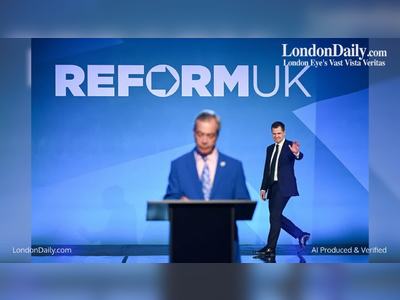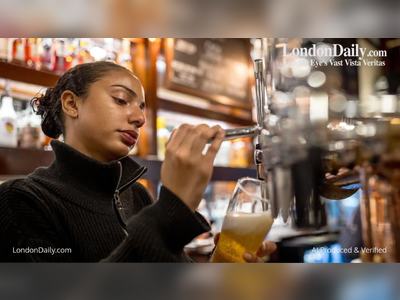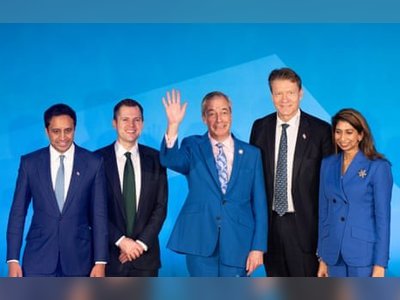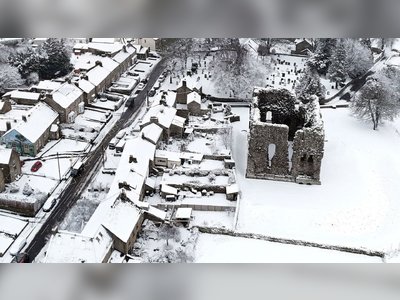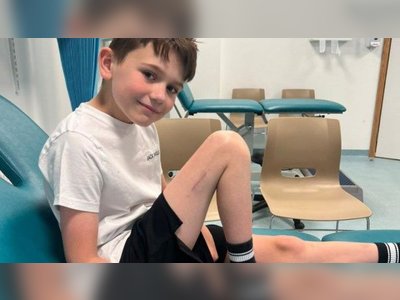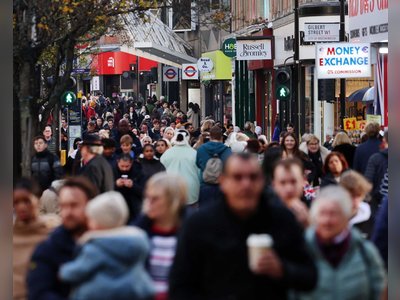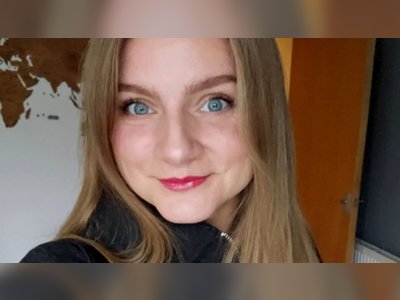
HSBC faces questions over disclosure of alleged money laundering to monitors
HSBC discovered a suspected money laundering network that received $4.2bn (£3bn) worth of payments, it has emerged, raising questions over whether it disclosed the information to US monitors who at the time were ensuring the bank cleaned up its act.
Insiders who spoke to journalists as part of a joint investigation by the Guardian and the Bureau of Investigative Journalism, have suggested that HSBC may not have appropriately shared the information with the monitoring team installed by US regulators in 2012 after HSBC allowed drug cartels in Latin America to launder hundreds of millions of dollars through its accounts.
A redacted internal HSBC report, published last week by authorities in South Africa, suggests the bank uncovered the previously undisclosed multibillion-pound network as early as 2016, while it was trying to assess its potential exposure to the controversial Gupta family, who were embroiled in a national corruption scandal in South Africa. The Guptas have denied any wrongdoing.
The report – which represents findings at the time – identified three companies with accounts at its Hong Kong branch that media reports had previously concluded were controlled by associates of the Gupta family. While tracing funds flowing from these companies, bank investigators uncovered what they suspected was a professional money laundering network controlled by unrelated parties.
The network was identified as involving 92 HSBC Hong Kong accounts that received $4.2bn worth of payments between 2014 and 2017, some of which may have been used for legitimate purposes. When the report was circulated in 2017, 60 of these accounts were still open.
Money flow from Gupta-linked companies into this network was “contained and minimal”, the bank concluded, amounting to just £12m. The majority of funds passing through the network appeared to be from multiple users not connected to the Guptas.
The bank, which is headquartered in London, would have been expected to disclose the information to an independent monitor brought in by the US Department of Justice (DoJ) in 2012, when criminal proceedings were deferred on condition the bank reform its anti-money laundering checks.
A number of former members of the DoJ monitoring team say they were never made aware of the network, raising questions over whether HSBC was fully transparent with the monitor, which was meant to keep tabs on the bank as it tried to improve its anti-money laundering standards.
“HSBC never voluntarily disclosed money laundering to us. They waited to be asked about it,” one ex-monitoring team member, who agreed to speak on the condition of anonymity, said. “As far as I’m aware, this particular report … was never disclosed to the monitor,” they said, adding that this appeared to be a bigger money laundering network than any they had identified at the bank.
Advertisement
HSBC said in a statement that it was illegal to disclose information it had shared with government authorities, and said “specific discussions with our former monitor remain confidential”.
“HSBC is committed to preventing criminals from accessing the financial system,” the bank said. “We actively look for unusual activity and when we become aware of customer accounts being used to facilitate financial crime, we take appropriate action, including closing those accounts.”
The bank is now facing questions from politicians, who are also taking aim at regulators over whether they can effectively hold executives to account. US senator and former democratic presidential candidate Elizabeth Warren said the report came shortly after HSBC received “mere slaps on the wrist for previous violations. Instead of relying on toothless deferred prosecution agreements like HSBC’s, the DoJ and Treasury must hold the executives of these giant banks personally accountable for allowing money laundering and other crimes [to take place].”
It is understood that HSBC was forced to release the report after a legal summons from the Zondo commission inquiry in South Africa, which is examining claims of high level corruption, including those against former president Jacob Zuma and members of the wealthy Gupta family, who have been accused of bribery, money laundering and political patronage, which they deny. Zuma, who was jailed earlier this month for failing to give evidence to the inquiry, has also denied any wrongdoing.
It is understood that the commission issued the summons after receiving evidence from Shadow World Investigations (SWI), a group of London-based non-profit researchers. “The vast flow of funds into and out of South Africa, and through laundry vehicles abroad, raises profound questions about the role of professional enablers in the process of state capture,” SWI said in a written submission to the commission. “It is vital that the banking sector in South Africa and abroad (and in the latter case, HSBC in particular), as well as the auditing sector answer how such large quantities of criminal funds could be transmitted around the world with seemingly little hindrance.”
The internal report, published on the Zondo commission website last week, said HSBC had money laundering concerns relating to three companies either controlled by or connected to an associate of the Gupta family, and “identified by credible investigative media sources to be at the centre of a large money laundering and bribery network linked to the family”. It noted HSBC Hong Kong accounts held by those companies may have been used for legitimate business purposes, but were also “allegedly used to receive bribery money”.
The report said its internal compliance team could not find any evidence of “an extended network of money laundering accounts controlled by the Guptas operating in HSBC”. The bank was unable to identify who ultimately benefited from funds passing through the network.
The report stated: “The Gupta funds could also not be followed as there were no clear outward patterns, but rather a dilution of funds into thousands of companies who pay funds onwards into thousands of smaller companies. We assess that the Gupta family likely made use of an established network, rather than set up accounts for the purpose of laundering their funds”.
In a statement, the Gupta family said that “neither the Gupta Brothers nor the Gupta Family or Gupta Entities have ever had any banking relationship with the HSBC Bank”. They added that they are in no way connected to the companies identified by HSBC.
“We reiterate that each of the three Gupta Brothers and each of the Gupta Entities owned by Gupta Family members are neither part of any money laundering network, nor have they promoted or supported any illegal or corrupt activities, or been associated with any money laundering network.”
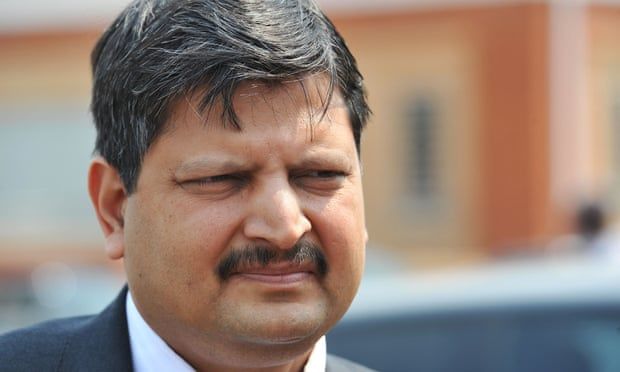 Atul
Gupta (pictured) is a member of the Gupta family, which has been
accused of corrupt links with former South African president Jacob Zuma.
They have denied any wrongdoing.
Atul
Gupta (pictured) is a member of the Gupta family, which has been
accused of corrupt links with former South African president Jacob Zuma.
They have denied any wrongdoing.
While a third of the 92 HSBC accounts linked to the suspected professional laundering network had been closed over that period, 60 were still operating by the time the investigation concluded in April 2017, and had made onward payments worth $3.78bn to another 5,576 accounts, nearly half of which were HSBC accounts.
However, a redacted note at the end of the report suggests the 60 top-level accounts were not flagged for immediate closure. Instead, they were referred to an undisclosed party “for live financial crime risk mitigation” and follow-up analysis in March 2017. It understood that HSBC has since revised some of the figures in the report.
“HSBC is committed to preventing criminals from accessing the financial system. We actively look for unusual activity and when we become aware of customer accounts being used to facilitate financial crime, we take appropriate action, including closing those accounts,” the bank said in a statement.
It is not clear whether the discoveries were shared with the DoJ-installed monitoring team, who were getting ready to wind down a four-and-a-half year global supervision programme launched in mid-2013. The monitoring programme was part of a deferred prosecution agreement with US regulators, which had also fined HSBC $1.9bn – a record at the time – for breaching sanctions and allowing drug traffickers in Latin America to funnel at least $881m through its accounts in one of the most high-profile money laundering scandals in a decade.
The monitoring programme, run by the US risk and compliance investigations company Exiger, sent supervisors to nearly a dozen countries and territories a year, including Hong Kong, to get a sense of the controls that HSBC had in place across its sprawling global business, which at the time extended to 75 countries. It is understood that as part of each visit, a team of 20-35 staff would request copies of the bank’s policies, procedures and meeting minutes for the previous year and ask to review specific client accounts that may have been problematic.
Another former member of the near 300-strong DoJ-ordered monitoring team said that they felt in their opinion, some HSBC staff, particularly senior employees, “were quite evasive”. “We had a sense that there [were] a whole set of other stones that we hadn’t been able to lift,” they added. “But I don’t think anybody [at HSBC] really wanted us to look that hard.”
HSBC said: “Throughout the monitor’s tenure, HSBC took very seriously its obligation to cooperate fully with the monitor and his team. The monitor acknowledged this cooperation in his reports.”
The bank added: “HSBC is determined to prevent criminals from accessing the financial system and, over several years, has overhauled its capabilities aimed at doing just that. This has included putting in place robust policies and procedures to detect, deter, and prevent financial crime across all of our affiliates globally that often exceed what is required in the local jurisdictions where we operate.”
Exiger and the US Department of Justice both declined to comment.
